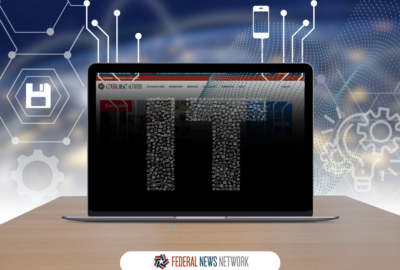Analysis: Concept of mobile worker not new, but changing technology is
Two former administrators in the Office of E-Government & Information Technology at the Office of Management and Budget, Karen Evans and Mark Forman, joined In...
wfedstaff | June 4, 2015 6:43 pm
Federal employees are buying and expressing demand for mobile devices — maybe even faster than agencies can supply them.
Two former administrators in the Office of E-Government & Information Technology at the Office of Management and Budget, Karen Evans and Mark Forman, joined In Depth with Francis Rose to discuss the mobile push in government, especially as OMB has recently broadened the focus.
“The technology is great,” Forman said. “There are companies booming in Android apps and iOS apps. So there clearly is a very fervent marketplace out there in building these mobility apps.”
But what does that mean for the government? Forman said some agencies are competing with private developers in designing citizen-facing apps, such as ones to quit smoking, for example. “It’s a hassle to do these within the agencies, but everyone wants to show how cool they are and how much they know the technology,” he added.
But outside those consumer-centric applications, agencies can also use mobile apps to reengineer their internal processes.
Some agencies are using mobile technology “to really do productivity improvement within the agencies,” Forman said. “For me, that’s where we’re really going to see a lot of the fruit of the application, the mobility.”
Idea of mobile worker not new
Mobile technology has advanced greatly in recent years, Evans said. “I don’t think that the concept of having a mobile worker is new,” she added.
“We think about it in health care, we think about it in law enforcement. But there are a lot of other programs that are out there,” Evans said, citing transportation and surveying projects as one area ripe for mobile expansion. “All of that stuff can be done with mobile technology and it should be.”
But a proper mobile push across government will require the necessary standards and security framework, both Forman and Evans said.
“To me, the key thing here is not so much what devices we’re using, but how we’re allowing people to have access to the networks,” Evans said.
RELATED STORIES:
OMB evolving mobile strategy as focus broadens
VanRoekel puts mobile strategy on fast track
Analysis: Effective mobile security requires ‘layered’ approach
http://www.federalnewsradio.com/?nid=246&sid=2767610
Copyright © 2025 Federal News Network. All rights reserved. This website is not intended for users located within the European Economic Area.





